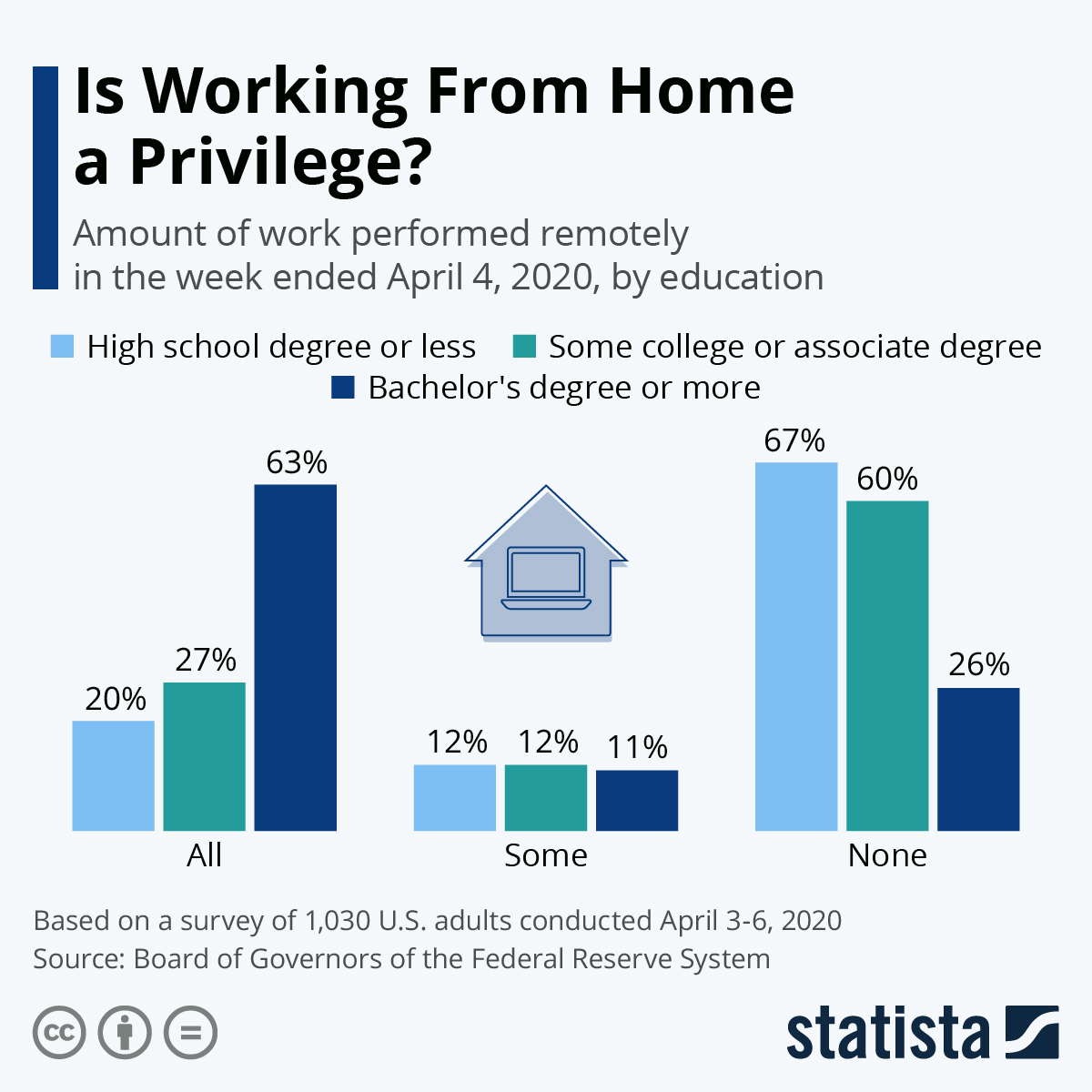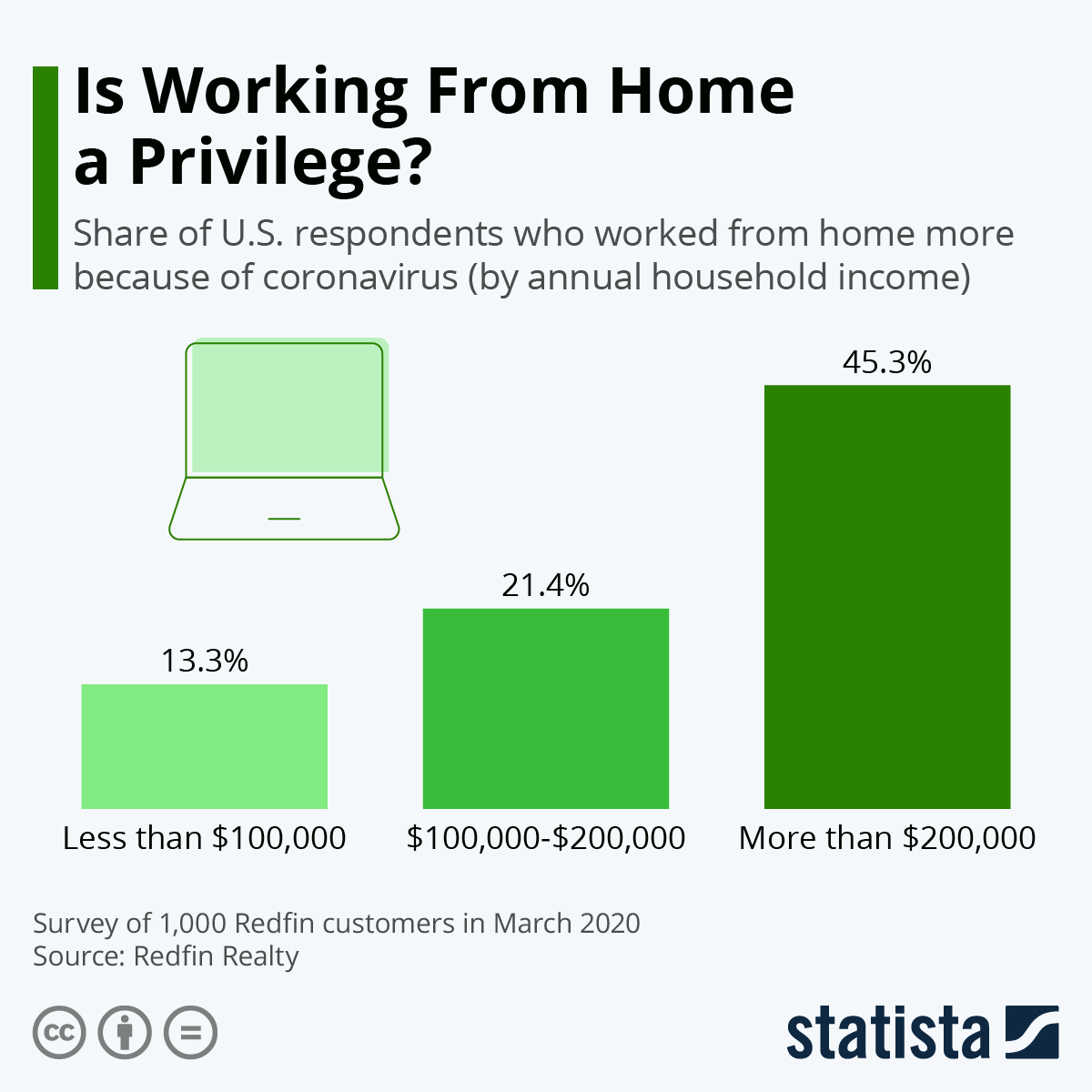Source: Statista
As millions of people have started working remotely in recent weeks to comply with stay-at-home orders in response to the COVID-19 pandemic, working from home has often been called “the new normal”. That may not be the case, however, despite being easily taken for granted by those whose job can be done remotely.
New data released in the Federal Reserve’s latest report on the Economic Well-Being of U.S. Households indicates that working from home is a privilege mostly reserved to highly educated white-collar workers. According to the results of a survey conducted in April 2020, 63 percent of respondents with a bachelor’s degree or higher worked remotely full-time in the week ending April 4 compared to just 20 percent of those with a high school degree or less.
The Fed’s findings are in line with earlier research showing that lower-income groups are less likely to work from home during the lockdown, which can largely be attributed to the nature of the jobs involved. While many college-educated office jobs require nothing but a laptop and an internet connection, most low-skill and low-income jobs, e.g. store clerks, factory workers, waiters, cannot be done remotely.
So while it’s easy to gripe about being forced to work from home, it’s important to remember that not everyone is as lucky and that unemployment is the not so pleasant alternative to working remotely in many cases.


